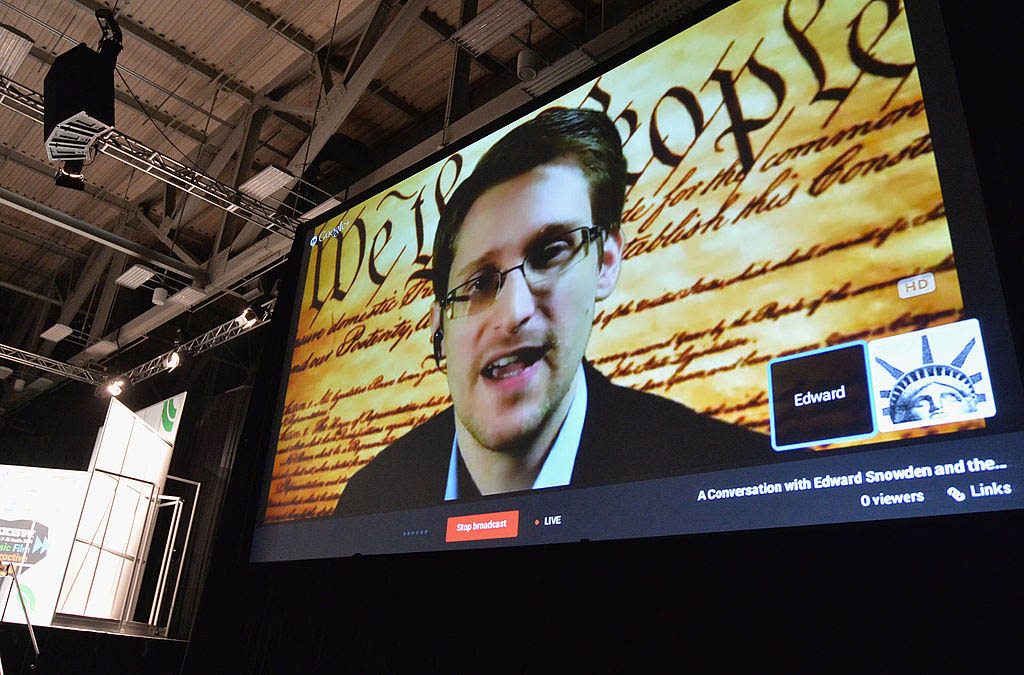
OAKLAND, Calif. — Technology may play a more crucial role in protecting people's rights than elections that come around every four years, Edward Snowden said.
Snowden, who has been living in exile in Russia since 2013, when he released a trove of documents revealing the U.S. National Security Agency's massive surveillance program, spoke to attendees here at the Real Future Fair via BeamPro, a telepresence robot that wheeled around the stage.
"Elections matter, votes matter, but they're never enough," Snowden said. "We shouldn't be thrust into a position where every four years we're forced to hope for a Barack Obama or fear a Donald Trump." [Nasty Elections: 5 Times Presidential Candidates Went Low]
Instead, the main hope for protecting democracy and staving off repression and surveillance may rest on developments in technology, Snowden said.
"Everyone in this room has a device, in their pocket, it's singing into the sky, looking for cell phone towers, saying, 'Here I am, here I am, record my location,'" Snowden said, referring to smartphones.
If technologies like smartphones know where we are, who we are with and what we are doing, then ensuring that this empowers individuals rather than disempowering them requires new innovations in mathematics, science and technology, Snowden said.
"Law is always something we should hope to reform," Snowden said. "But at the end of the day, law is simply letters on a page, they're not going to jump up and protect your rights."
Get the world’s most fascinating discoveries delivered straight to your inbox.
Some of the technologies that could help protect democracy and protect individual rights around the globe include technologies that allow dissidents to publish anonymously, speak with a veil of protection online, and perhaps even leverage augmented reality so that people can virtually congregate for democratic movements, Snowden speculated.
However, one risk in developing these new technologies is that corporations, such as Facebook, Google and Twitter own many of these social media platforms, Snowden said.
"We don’t want companies deciding what it is that we do," Snowden said.
To solve this problem, there needs to be a diffuse network of these online platforms, rather than just a few behemoths, he added.
"Instead of one Facebook, you have 10,000, all of which are connected together," Snowden said.
Original article on Live Science.

Tia is the editor-in-chief (premium) and was formerly managing editor and senior writer for Live Science. Her work has appeared in Scientific American, Wired.com, Science News and other outlets. She holds a master's degree in bioengineering from the University of Washington, a graduate certificate in science writing from UC Santa Cruz and a bachelor's degree in mechanical engineering from the University of Texas at Austin. Tia was part of a team at the Milwaukee Journal Sentinel that published the Empty Cradles series on preterm births, which won multiple awards, including the 2012 Casey Medal for Meritorious Journalism.
 Live Science Plus
Live Science Plus





